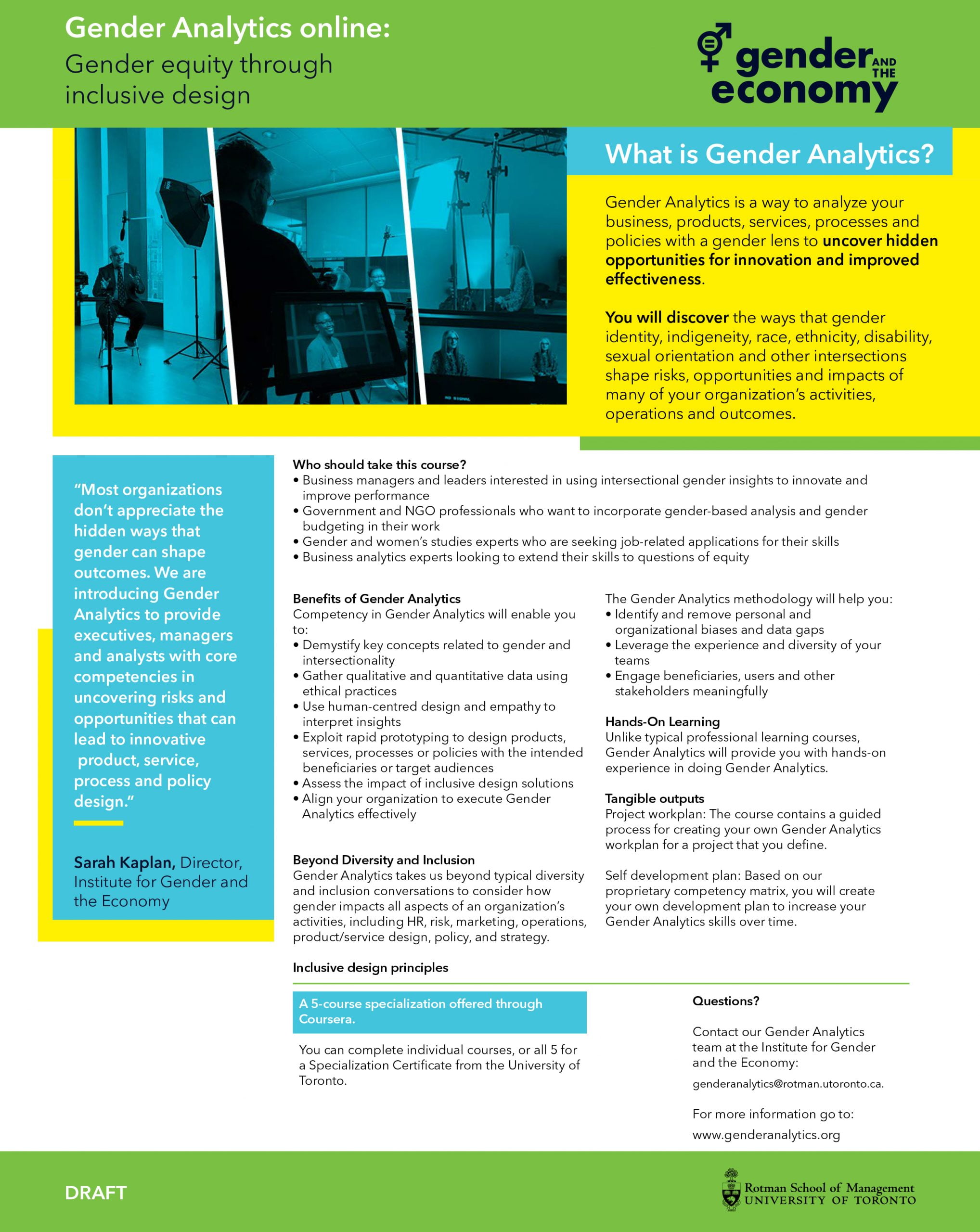On November 9th we are launching our new 5 course specialization on Coursera to introduce you to intersectional gender-based analytics.
What is Gender Analytics?
Gender Analytics is a way to analyze your products, services, processes and policies with a gender lens to uncover hidden opportunities for innovation and improved effectiveness.
You will discover the ways that gender identity, indigeneity, race, ethnicity, disability, sexual orientation and other intersections shape risks, opportunities and impacts of many of your organization’s activities, operations and outcomes.

Sign up below to be the first to know when the Specialization launches!
Who should take this course?
- Business managers and leaders interested in using intersectional gender insights to innovate and improve performance
- Government and NGO professionals who want to incorporate gender-based analysis and gender budgeting in their work
- Gender and women’s studies experts who are seeking job-related applications for their skills
- Business analytics experts looking to extend their skills to questions of equity
- Human resource professionals, or Diversity and Inclusion leads such as Chief Diversity Officers, looking to be more effective partners to support business innovation and growth.
Benefits of Gender Analytics
Competency in Gender Analytics will enable you to:
- Demystify key concepts related to gender and intersectionality
- Gather qualitative and quantitative data using ethical practices
- Use human-centred design and empathy to interpret insights
- Exploit rapid prototyping to design products, services, processes or policies with beneficiaries or target audiences
- Assess the impact of inclusive design solutions
- Align your organization to execute Gender Analytics effectively
Acknowledgements: The Gender Analytics specialization was developed by the Institute for Gender and the Economy at the University of Toronto’s Rotman School of Management with support from CIBC, Catalyst, Inc., PwC, and Women and Gender Equality Canada.
For more information on the courses and modules, see our draft outline here.





